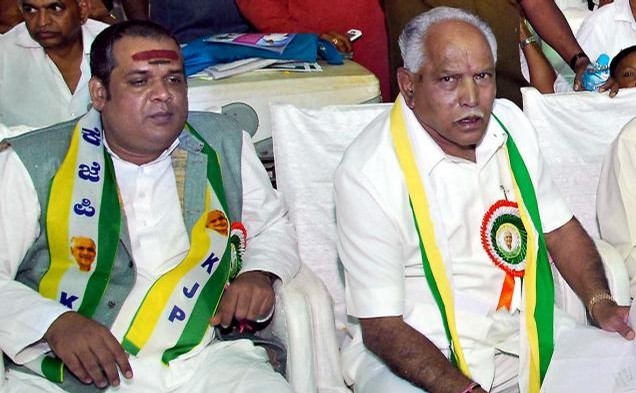
Chennai, Feb 7: Founder-president of Karnataka Janata Party (KJP) Padmanabha Prasanna Kumar on Wednesday disclosed here that he was seeking political refuge in Tamil Nadu owing to “threats to me and my family members” from former Karnataka chief minister B S Yeddyurappa.
Yeddyurappa, on quitting the BJP, was admitted into KJP after he agreed to share all the posts in the new party “with our already existing members on a 50-50 ratio,” but the former BJP leader reneged on his promise and “has hijacked my party (KJP),” Kumar told a news conference in Chennai.
Charging Yeddyurappa with sidelining all the original KJP members, including himself, Kumar said they did not agree with the former chief minister’s attempt to topple the Jagadish Shettar-led BJP government with just a few months to go for the Assembly elections. “Any such move would have brought a bad name to the KJP just before the elections,” Kumar said.
These developments led to the expulsion of Yeddyurappa from KJP’s primary membership recently, he said.
Stating that he had conveyed the decision of the KJP’s Emergency Executive Committee meeting held in Bangalore on December 20, 2012, to the Election Commission, duly informing it that Yeddyurappa had been removed as the State president of KJP, Kumar said since then he had been receiving threat calls.
“Without personal security, I cannot move around in Karnataka and hence I have come to Chennai for political asylum and will meet Chief Minister J Jayalalitha in this regard,” he said.
“I am still the president of KJP,” he said, adding, he chose Tamil Nadu for political asylum as both states had long-standing ties as part of the erstwhile Madras Presidency.
Kumar said he had also written to the President of India, the Union Home Minister and the Karnataka Governor, explaining his predicament.
“When Yeddyurappa left the BJP, he was in need of a party; after we accommodated him, in the subsequent conventions at Haveri, Bangalore and Mysore, we (KJP) members were totally sidelined,” said Kumar and added that he fell prey to Yeddyurappa’s false assurances.





Comments
Add new comment